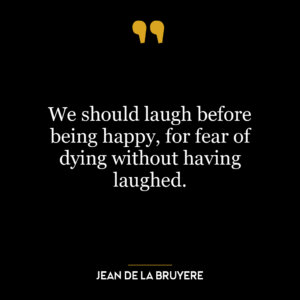This quote suggests that happiness is not something that can be pursued directly or with a single-minded focus. Rather, it is a byproduct of engaging in activities or pursuits that are meaningful and fulfilling to the individual. In other words, it’s not the destination but the journey that brings happiness.
This idea is counterintuitive to the common belief that happiness is a goal to be reached. Instead, it proposes that happiness is more of a state of being that arises naturally when one is immersed in activities that they genuinely enjoy or find fulfilling. It’s like chasing a butterfly; the more you chase it, the more it eludes you. But if you sit quietly and engage in something you love, the butterfly may just come and land on your shoulder.
In today’s world, this concept is especially relevant. Society often pushes the narrative that happiness is tied to tangible achievements like wealth, status, or material possessions. However, this quote suggests that true happiness is not found in these external markers of success, but rather in the pursuit of passions, meaningful relationships, and personal growth.
From a personal development perspective, this quote encourages individuals to focus less on seeking happiness directly and more on cultivating a life that is rich in purpose and passion. This could mean prioritizing personal interests, nurturing relationships, or contributing to a cause greater than oneself. By doing so, happiness becomes a natural outcome rather than a forced pursuit.
In essence, instead of asking “How can I be happy?”, we might be better served by asking “What can I do that brings me joy, fulfillment, and purpose?” and then immersing ourselves in those activities. Happiness, then, may follow as a delightful side effect.









